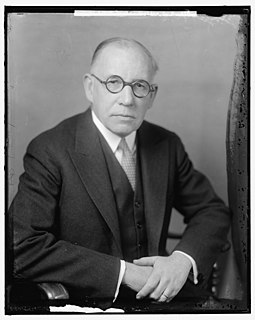A Quote by Jules Verne
The industrial stomach cannot live without coal; industry is a carbonivorous animal and must have its proper food.
Related Quotes
Humans need Jesus Christ as a necessity and not as a luxury. You may be pleased to have flowers, but you must have bread. . . . Jesus is not a phenomenon, He is bread: Christ is not a curiosity, He is water. As surely as we cannot live without bread, we cannot live truly without Christ: If we know not Christ we are not living, our movement is a mechanical flutter, our pulse is but the stirring of an animal life.
The climate-change industrial complex pontificates that the U.S. has to stop using coal to save the planet. But even if the U.S. cut our own coal production to zero, China and India are building hundreds of coal plants. By suspending American coal production, we are merely transferring jobs out of the U.S.
Coal is a portable climate. It carries the heat of the tropics to Labrador and the polar circle; and it is the means of transporting itself whithersoever it is wanted. Watt and Stephenson whispered in the ear of mankind their secret, that a half-ounce of coal will draw two tons a mile, and coal carries coal, by rail and by boat, to make Canada as warm as Calcutta, and with its comfort brings its industrial power.
We may live without poetry, music and art; We may live without conscience, and live without heart; We may live without friends; we may live without books; But civilized man cannot live without cooks. . . . He may live without books,-what is knowledge but grieving? He may live without hope,-what is hope but deceiving? He may live without love,-what is passion but pining? But where is the man that can live without dining?
Industrial Society is not merely one containing 'industry,' large-scale productive units capable of supplying man's material needs in a way which can eliminate poverty: it is also a society in which knowledge plays a part wholly different from that which it played in earlier social forms, and which indeed possesses a quite different type of knowledge. Modern science is inconceivable outside an industrial society: but modern industrial society is equally inconceivable without modern science. Roughly, science is the mode of cognition of industrial society, and industry is the ecology of science.






































